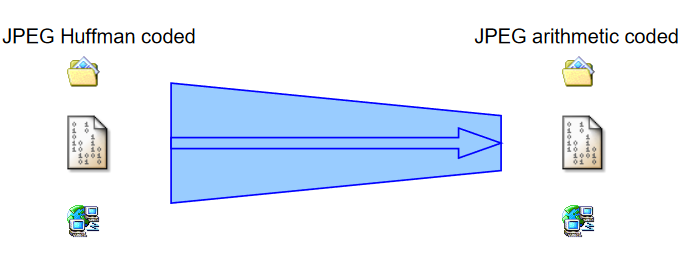Google recently released an image encoder that is able to compress JPEG images 20-30% better than libjpeg without compromising on the visual quality. Very good. You can use it on every platform (Linux, Windows, MacOS) to compress your images. Though needing many resources the result seems to be almost unrivalled compared to what other systems do.
So far so good. It would be worthwile to add that this software as many others use an encoding algorithm that is anachronistic in many ways. Guetzli uses a Huffmann encoding for JPEG images, that is, though still widely used, technically outdated for at least 10 years. The ISO specification for JPEG images included an arithmetic compression more than 25 years ago. This compression is much more modern and could yield the same or even better results and, in addition to this, even lossless. The libjpeg of the Independet JPEG Group has this method included since Version 7 from 2009 (recent version is 9b – 2017).

Arithmetic compression is more effective than Huffman encoding.
The reason that nobody uses this method is, that no web browser supports it. Google could, to reduce web traffic on a large scale and in a future-proof way, include the support for this technique in its Chrome-browser. Since at present Chrome is the most popular browser the others would follow suit. This would be much better use of resources that should not be spent on outdated algorithms. The encoding applications from Adobe, Corel etc. and those using the IJG libjpeg could implement this then easily. The result would be a reduction of internet traffic caused by images, faster loading of websites that use many images and better image quality. This is much more than Guetzli can do for us.

Comments are closed, but trackbacks and pingbacks are open.